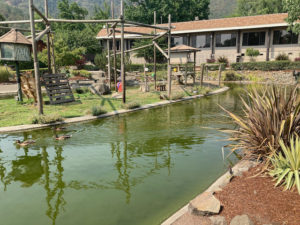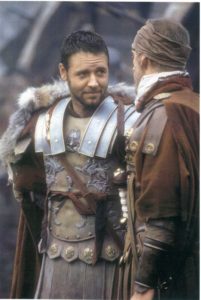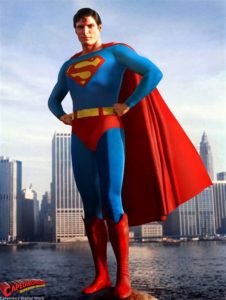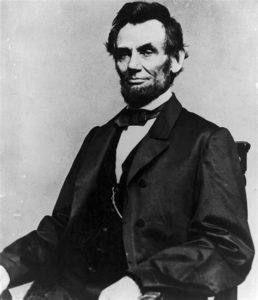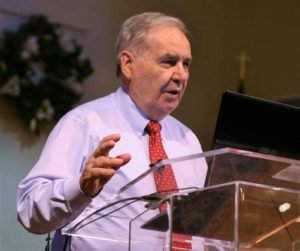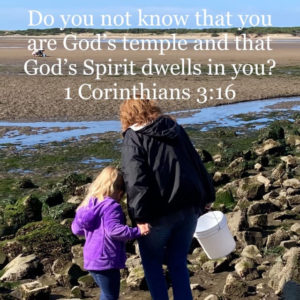“Now unto the King eternal, immortal, invisible, the only wise God, be honor and glory for ever and ever.” 1 Timothy 1:17
 1 Timothy 1:17 gives us several important reasons why we should worship God. In a world that wants to worship everything but God, we can thank Paul that he gave us some very concise reasons why there is only one worth worshipping in our universe. No other small “g” gods can match the attributes of our big “G” God because all others are fake gods. There was a toy years ago which was call a Build-a-Bear. This small stuffed animal could be built to be anything.
1 Timothy 1:17 gives us several important reasons why we should worship God. In a world that wants to worship everything but God, we can thank Paul that he gave us some very concise reasons why there is only one worth worshipping in our universe. No other small “g” gods can match the attributes of our big “G” God because all others are fake gods. There was a toy years ago which was call a Build-a-Bear. This small stuffed animal could be built to be anything.  If a young Child wanted a grandfatherly bear, he could get one with glasses, whiskers, and a cane. If a child wanted a policeman bear, he could get one with a uniform, hat, and billy club. Any kind of bear someone wanted he could get. Well, today many ascribe to a Build-a-God model. Do you see God as a kind teetering old man that gives you whatever you want. Maybe you see God as the enforcer wielding his billy club at a moments notice to keep you in line. In this day and age we tend not to worship God for what He is, but what we want him to be. So the question today is not so much how we should worship God but why.
If a young Child wanted a grandfatherly bear, he could get one with glasses, whiskers, and a cane. If a child wanted a policeman bear, he could get one with a uniform, hat, and billy club. Any kind of bear someone wanted he could get. Well, today many ascribe to a Build-a-God model. Do you see God as a kind teetering old man that gives you whatever you want. Maybe you see God as the enforcer wielding his billy club at a moments notice to keep you in line. In this day and age we tend not to worship God for what He is, but what we want him to be. So the question today is not so much how we should worship God but why.
We should worship God, first of all, because he is the King Eternal. He always has been and always will be the sovereign King of the universe. He has never relinquished His throne and will never relinquish His throne. He is the King over America and the is King over the rest of the world. He is not only the King of this century, but he was King in every century proceeding. He has been King and will be King throughout eternity. He truly is the King eternal.
We should worship God, secondly, because he is the King Immortal. Paul uses the same Greek word here as Peter uses to describe our “incorruptible” inheritance in heaven (1 Peter 1:4). As we look around us everything we see is degrading. The planet is degrading, our bodies are degrading (boy, do I know it), and the whole universe is degrading. Not only will God last forever, but he will never decay or diminish even one little bit. He remains unchanged throughout all time. He is imperishable in his essence and in his existence, in his character and in his longevity.
Thirdly, We should worship God because he is the King Invisible. There is a story about a father who asked his son what he was drawing. Without looking up the boy said, “God.”
His father smiled and responded, “But nobody knows what God looks like.”
 His son kept coloring and said, “They will in a minute.” We don’t know what God looks like, but why should invisibility be an attribute that leads to worship? As humans we often equate realness with what we can see or touch, but we know we cannot touch feelings, yet we know they exist. How much more wonderful it is to have a Person of the godhead who is not restricted in movement or time. Contrary to what our senses tell us, God is more real than anything that we can see or touch because his existence is not limited in any way. We are told in the Word that we cannot gaze upon God’s glory because He is impossible to look at. If we were to look upon Him, we would die. We can thank God that He is invisible to us so that we can enjoy His glory without danger.
His son kept coloring and said, “They will in a minute.” We don’t know what God looks like, but why should invisibility be an attribute that leads to worship? As humans we often equate realness with what we can see or touch, but we know we cannot touch feelings, yet we know they exist. How much more wonderful it is to have a Person of the godhead who is not restricted in movement or time. Contrary to what our senses tell us, God is more real than anything that we can see or touch because his existence is not limited in any way. We are told in the Word that we cannot gaze upon God’s glory because He is impossible to look at. If we were to look upon Him, we would die. We can thank God that He is invisible to us so that we can enjoy His glory without danger.
Finally, we should worship God because he is the only God All-knowing. We can create a god of our own, but if we do so, we will create a god that we can understand. When we create a god, we then are above the god we have created. That’s why so many create their own gods because they can handcraft them to be what  they want them to be. The one true God has not been crafted by our own invention. Every god other than the God of the Bible is contrived and allows (or more rightly makes) man try to reach him. Man wants to create gods because he likes to think he is able to do something to “reach” God. But that is impossible. For one, it is impossible to reach a non-existent god, and two, it is impossible to reach, on our own, the true God of the universe. Our God is the only one who has reached down to us, through His Son, and He loved us enough to freely give us a relationship with Him. He is the all-wise God and all true wisdom comes from him, and so all true praise should go to him.
they want them to be. The one true God has not been crafted by our own invention. Every god other than the God of the Bible is contrived and allows (or more rightly makes) man try to reach him. Man wants to create gods because he likes to think he is able to do something to “reach” God. But that is impossible. For one, it is impossible to reach a non-existent god, and two, it is impossible to reach, on our own, the true God of the universe. Our God is the only one who has reached down to us, through His Son, and He loved us enough to freely give us a relationship with Him. He is the all-wise God and all true wisdom comes from him, and so all true praise should go to him.
We should not try to craft God into what we want him to be. When we do that, we are trying to change a God who cannot be changed, so we are in essence creating a new non-existent god. A god like that has none of the attributes we see in the above verse in 1 Timothy because he exists no where but in our own minds. If we worship that god, we are in essence worshipping ourselves. Choosing between worshipping ourselves and worshipping the one true and mighty creator of the universe is, as they say, a “no-brainer.”



